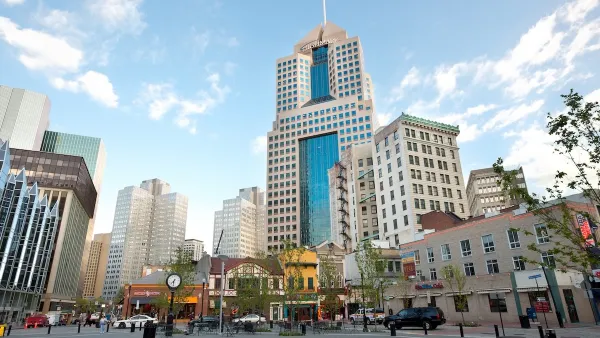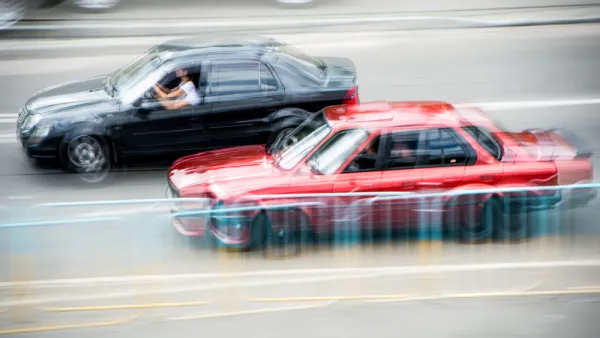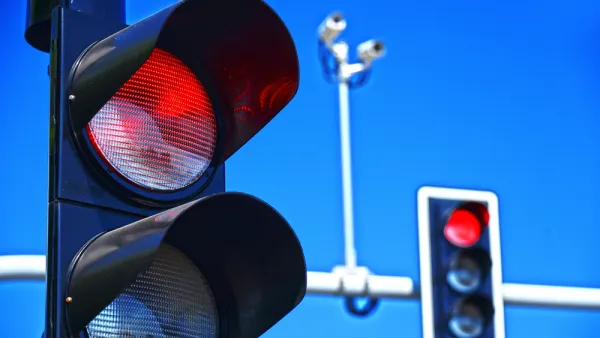The passage by the PA state senate of a bill allowing Pittsburgh and other cities to use red light traffic enforcement cameras has drawn a strong warning and a study from Penn Public Interest Research Group (PIRG) to only use them for safety purposes
Legislative developments in PA and CA has the Public Interest Research Group concerned about "privatized traffic law enforcement", aka red light cameras. However, in PA, PIRG need not worry about cities getting rich from unsuspecting red-light runners.
PennPIRG released a 52-page report Oct. 27, "Caution: Red Light Cameras Ahead - The Risks of Privatizing Traffic Law Enforcement and How to Protect the Public" and warned that "private for-profit companies are lobbying government officials to install the cameras and, in some cases, safety issues are taking a back seat to profit motives."
Only Philadelphia can use the cameras at present. The cities can not, by law, use the cameras as cash cows as funds would go "to the state and is redistributed for transportation safety enhancements."
From EXECUTIVE SUMMARY:
"Privatized traffic law enforcement systems are spreading rapidly across the United States. As many as 700 local jurisdictions have entered into deals with for-profit companies to install camera systems at intersections and along roadways to encourage drivers to obey traffic signals and follow speed limits.
Local contracting for automated traffic enforcement systems may sometimes be a useful tool for keeping drivers and pedestrians safe. But when private firms and municipalities consider revenues first, and safety second, the public interest is threatened."
From Inside Bay Area: Study: Use red-light cameras for safety, not cash:
"State Sen. Joe Simitian, D-Palo Alto, authored a bill this year that would've reformed the use of traffic cameras by requiring local governments to post signs near where the cameras are installed; develop uniform guidelines for screening and issuing tickets from the cameras; make formal fact-findings to justify future installations; to ignore revenue, beyond the system's own costs, when considering whether to install such systems; and so on.
SB 29 had overwhelming bipartisan support, approved by the Assembly on a 70-4 vote and by the state Senate on a 38-0 vote. Yet Gov. Jerry Brown vetoed the bill this month, writing that installation and maintenance of such camera systems "is something that can and should be overseen by local elected officials" without state interference."
Thanks to Streetsblog Capitol Hill
FULL STORY: Research group urges caution in deploying red-light cameras

Analysis: Cybertruck Fatality Rate Far Exceeds That of Ford Pinto
The Tesla Cybertruck was recalled seven times last year.

National Parks Layoffs Will Cause Communities to Lose Billions
Thousands of essential park workers were laid off this week, just before the busy spring break season.

Retro-silient?: America’s First “Eco-burb,” The Woodlands Turns 50
A master-planned community north of Houston offers lessons on green infrastructure and resilient design, but falls short of its founder’s lofty affordability and walkability goals.

Test News Post 1
This is a summary

Analysis: Cybertruck Fatality Rate Far Exceeds That of Ford Pinto
The Tesla Cybertruck was recalled seven times last year.

Test News Headline 46
Test for the image on the front page.
Urban Design for Planners 1: Software Tools
This six-course series explores essential urban design concepts using open source software and equips planners with the tools they need to participate fully in the urban design process.
Planning for Universal Design
Learn the tools for implementing Universal Design in planning regulations.
EMC Planning Group, Inc.
Planetizen
Planetizen
Mpact (formerly Rail~Volution)
Great Falls Development Authority, Inc.
HUDs Office of Policy Development and Research
NYU Wagner Graduate School of Public Service




























